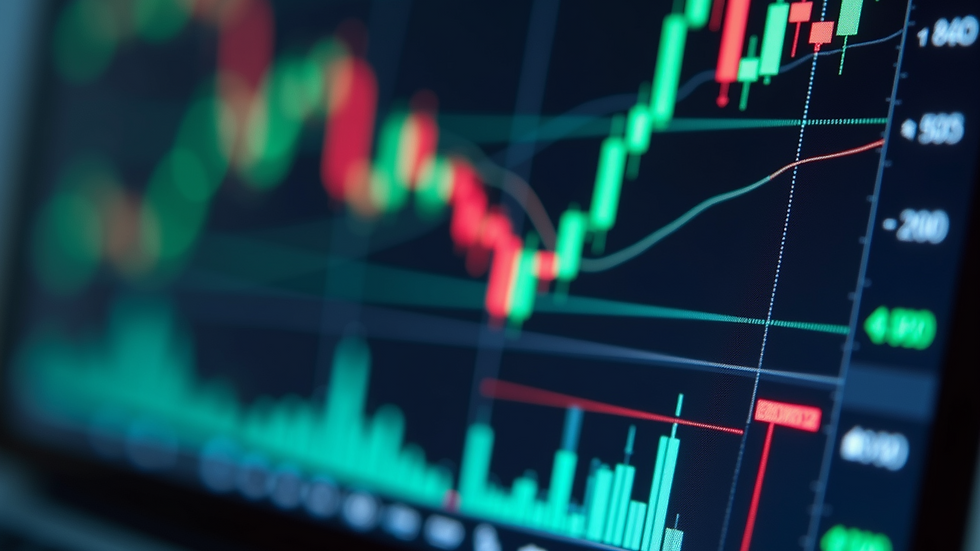The GameStop Saga: Small Investors Paying the Biggies in the Same Coin
- forex368

- Jan 22, 2023
- 4 min read
The GameStop saga has captivated the financial world as it showcased a remarkable role reversal between small retail investors and established financial institutions. Through social media platforms like Reddit, individual investors organized themselves and executed a coordinated effort to drive up the stock price of GameStop, a struggling video game retailer. This unexpected surge created significant losses for hedge funds and other big finance players who had taken short positions on the stock.
This unprecedented phenomenon drew attention to the tactics and practices employed by both sides. While established financial institutions accused the retail investors of market manipulation, many argued that these individuals were simply utilizing the same strategies that big players had employed for years. The power dynamics seemed to have shifted temporarily, with small investors leveraging their collective strength to challenge traditional market norms.
However, the response from established financial firms was swift. Trading apps like Robinhood, which had catered to retail investors, restricted or halted trading of certain stocks involved in the frenzy. This move drew criticism from individual investors who felt their actions were being curtailed to protect the interests of the big players. The GameStop saga became a reflection of the larger battle for market dominance between retail investors, empowered by third-party trading apps, and established financial institutions.
Another crucial aspect of the GameStop saga was the debate surrounding the underlying motives of the retail investors. Critics argued that their actions lacked a solid economic or financial basis and were driven by malice or spite toward hedge funds. This raised questions about the need for increased regulation to curb such unrestrained market activities, regardless of the participants' size. Market stability and fairness were brought into focus, with calls for consistent rules and regulations applicable to all market participants.
The GameStop saga highlighted the potential of technology-driven trading platforms to empower small investors and challenge the established order. However, it also underscored the influence and resistance of the big players in maintaining the status quo. The ongoing battle for market dominance, with the power pendulum swinging between retail investors and financial institutions, is likely to continue. With the support of the current Democratic administration, small investors may find increased backing, but the fight for a fair and balanced market environment is far from over.
As the dust settles, it is essential to recognize that trading based on value and fundamental principles should be the norm rather than speculative frenzies. A focus on market equilibrium, rooted in solid economic foundations, can help prevent wild gyrations and excessive volatility. The GameStop saga serves as a reminder that the dynamics of the market are constantly evolving, with technology playing a significant role for both small investors and established players. The future holds more uncertainties and potential battles for dominance, where the shoe might drop on different feet, challenging the established norms and reshaping the financial landscape.
In the aftermath of the GameStop saga, it has become evident that the story is far from over. The events surrounding GameStop were merely a precursor to a larger battle that is unfolding within the financial markets. The involvement of prominent legislators and the increasing support for small investors indicate a shifting landscape where the interests of retail investors are gaining recognition.
However, it is important to acknowledge that the status quoits, the established financial institutions, are not backing down without a fight. They have shown their determination to protect their position and influence within the market. The clash between small investors and big players has become akin to a modern-day industrial revolution, where the war for market dominance is being waged on multiple fronts.
With a Democratic administration in power, there may be a more favourable environment for small investors, as legislators have shown solidarity with their cause. This could potentially lead to regulatory reforms that aim to level the playing field and ensure fairness in the market. The battle between the biggies and the small fry is far from settled, and the next iteration of the power struggle may bring about another role reversal.
The lessons learned from the GameStop saga are vital for shaping the future of the financial markets. It is crucial to strike a balance between innovation and regulation, ensuring that the market operates on principles of value and fundamentals rather than speculative frenzies. Transparency, accountability, and equal treatment for all participants, regardless of their size, are fundamental pillars that must be upheld to maintain market stability and integrity.
As technology continues to evolve, third-party trading apps and online communities will play an increasingly significant role in empowering small investors. The democratization of finance has the potential to reshape the landscape, allowing individuals to have a greater say in market dynamics. However, it is equally important to ensure that regulations keep pace with technological advancements to safeguard against potential risks and market manipulation.
The story of the GameStop saga has ignited a spark that will reverberate throughout the financial world. It symbolizes a broader movement toward challenging the entrenched power structures and creating a more inclusive and equitable market environment. The ultimate outcome of this ongoing battle between small investors and established players remains uncertain, but it is clear that the dynamics of the financial markets are being reshaped, and the shoe may drop on the other foot again in the future.




